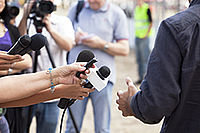Latest News
18 April 2023
Nature publication on loops, flags and tension in DNA
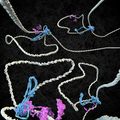
Two protein complexes carry the major responsibility for the spatial organisation of chromosomes in our cell nuclei. DNA tension plays a surprising role in this. Together with Austrian colleagues, nanoscientist Cees Dekker and his PhD candidate Roman Barth of the Kavli Institute of Nanoscience at TU Delft now publish how they have visualised this in detail in Nature on April 19.
14 April 2023
TU Delft researchers shed new light on the motor of DNA replication
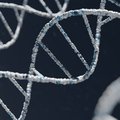
DNA replication is the process whereby cells make an exact copy of their DNA before cell division. A key part of the intricate DNA replication machinery is a molecular motor called CMG, which has the vital task of separating the two strands of the DNA double helix so that they can be copied. An interdisciplinary team of researchers from TU Delft has now developed a new methodology to assemble and image the motion of CMG with unprecedented resolution.
12 April 2023
TU Delft to collaborate on sustainable aviation with French aviation sector
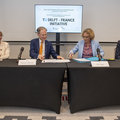
On 12 April a number of covenants were signed in the presence of Minister Robbert Dijkgraaf of Education, Culture and Science and his French colleague Sylvie Retailleau to intensify the collaboration between both countries in the field of science. One of the covenants focuses on the collaboration between TU Delft and French universities and businesses. For TU Delft this represents an important step in terms of research into sustainable aviation.
04 April 2023
Open Technology Programme funds three Delft research projects

The board of NWO Domain Applied and Engineering Sciences awards funding to seven research projects through the Open Technology Programme. Three of the total seven proposals have been awarded to Delft researchers. In total, NWO is funding the projects with 5.8 million euros, companies involved and other organisations are investing 900 thousand euros.
28 March 2023
Four designs for earthquake-resistant shelters for Turkey and Syria
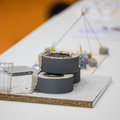
Modular homes that can be quickly adapted to a family situation, cleverly reusing rubble as building material for temporary housing, setting up emergency shelters in tent camps in such a way that communities can still be together. With such housing solutions and designs came 50 students from TU Delft after an education week on earthquake-resistant building and architecture after humanitarian disasters.
28 March 2023
TU Delft retains position in top 15 of world QS Engineering & Technology Ranking

TU Delft is ranked 13th for Engineering & Technology in the QS World University Rankings by Subject published on 22 March 2023. TU Delft also made the top 20 in nine of its specialisations.
28 March 2023
New CardioVascular Biomechanics Lab presents golden opportunity for engineers, physicians and patients alike

Delftse wetenschappers en studenten die onderzoek doen naar de biomechanica van het hart en bloedvaten werken samen met cardiologen, neurologen en radiologen van het Erasmus MC in het CardioVascular Biomechanics Lab (CVBL). Ze werken dagelijks aan biomechanische vraagstukken op het gebied van hart -en vaatziekten en blijken daarbij van onschatbare waarde voor elkaar.
27 March 2023
Delft University Fund launches new campaign: Tech for Impact
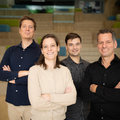
How can we make physical jobs more attractive? Can we speed up research on dementia? Can we make our campus an example of sustainability? And will ambitious students succeed in making seaweed aquaculture more sustainable? These four questions are at the heart of the new campaign of Delft University Fund: Tech for Impact 2023.
24 March 2023
Information market 22 April 2023: 60 years of research and education with the reactor
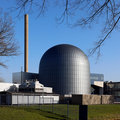
The dome of the research reactor on TU Delft Campus is a familiar sight to many. This year marks 60 years since the reactor was commissioned. But, who knows how and what this reactor is used for?
17 March 2023
Automated Vehicles – How to Keep Humans in Control?

Self-driving vehicles that smoothly, quickly, and entirely autonomously drive us around – technically, we are almost there. However, before these vehicles are allowed on the road, we must ensure that they remain sufficiently safe, manageable, and responsible. How can automobile manufacturers, road authorities, and regulators work together to achieve this?
